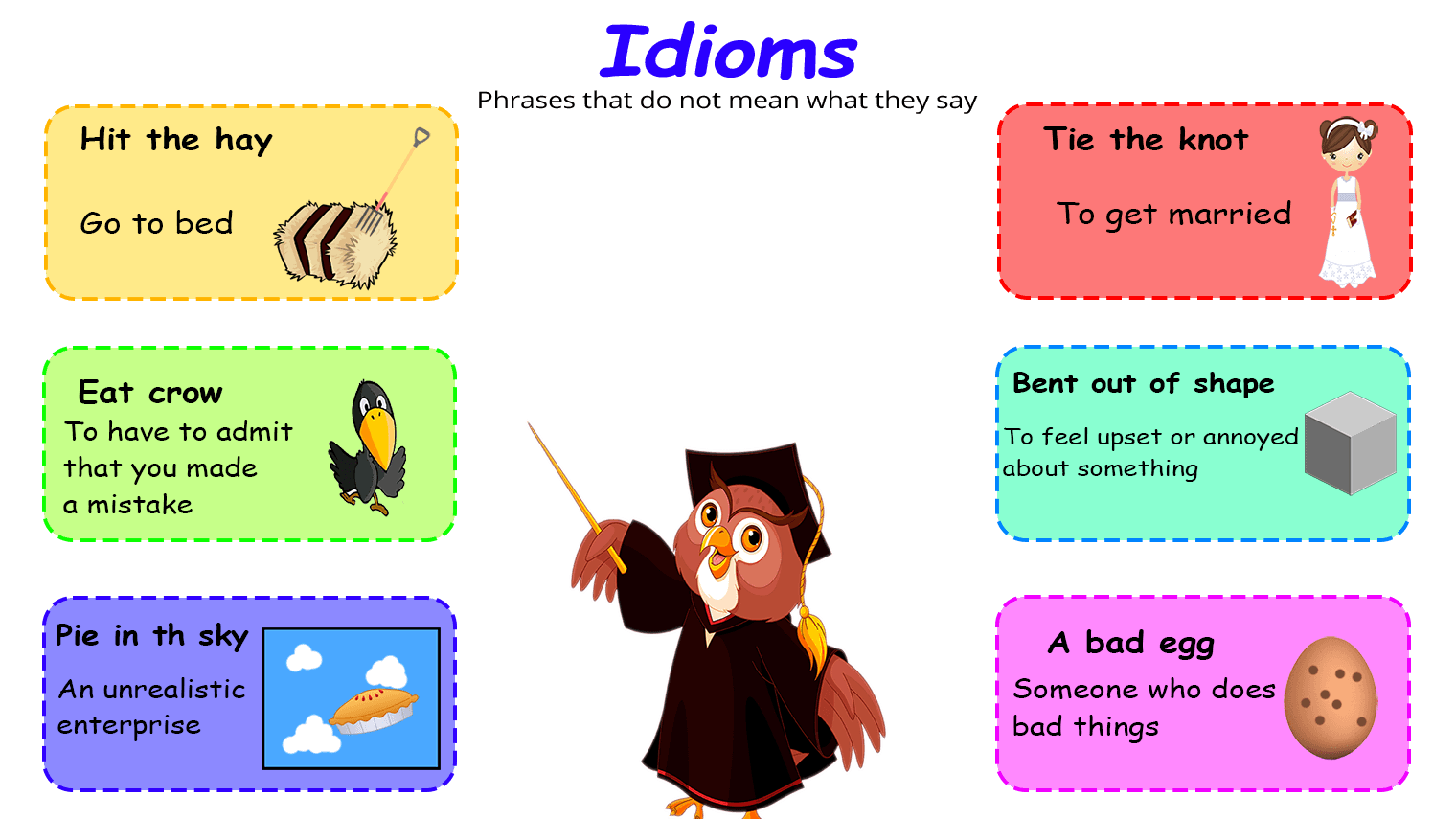




What Are Idioms? Definitions, Uses, and Key Benefits
FAQs on Great Idiom Examples to Power Up Your English
1. What exactly is an idiom in English grammar?
An idiom is a group of words or a phrase whose meaning cannot be understood from the literal definition of its individual words. For example, the idiom "it's raining cats and dogs" has nothing to do with animals; it simply means it is raining very heavily. Idioms are a form of figurative language that adds colour and creativity to expression.
2. Why is it important to use idioms in communication?
Using idioms is important because it makes your language more vivid, expressive, and engaging. Instead of using simple, direct sentences, idioms allow you to convey complex ideas or emotions in a more creative and memorable way. They demonstrate a deeper understanding of the language and can make both your writing and speaking more natural and impactful, which is especially useful in creative writing assignments.
3. What are some common examples of idioms that students can use?
Here are a few common and fun idiom examples suitable for students:
- A piece of cake: This means something is very easy to do. (e.g., "The math test was a piece of cake.")
- Spill the beans: This means to reveal a secret. (e.g., "She spilled the beans about the surprise party.")
- Once in a blue moon: This describes an event that happens very rarely. (e.g., "I only see my cousin once in a blue moon.")
- Kill two birds with one stone: This means to achieve two things with a single action. (e.g., "By cycling to school, I get exercise and save bus fare, killing two birds with one stone.")
4. What is the main difference between an idiom and a phrase?
The main difference lies in their meaning. A phrase is any group of two or more words that work together as a unit in a sentence, and its meaning is usually literal (e.g., "in the morning"). An idiom is a specific type of phrase where the meaning is figurative and cannot be guessed from the individual words (e.g., "kick the bucket"). Essentially, all idioms are phrases, but not all phrases are idioms.
5. Can idioms be used in formal writing, like in CBSE exams?
While idioms are more common in informal, spoken English, they can be used carefully in formal writing to make a point more powerful. However, it is generally advisable to avoid overusing them in academic or exam answers, such as those for CBSE. If you do use an idiom, ensure it is well-known and appropriate for the context. For creative writing sections, using an idiom correctly can enhance your score, but for factual answers, it's safer to use clear, direct language.
6. How do idioms reflect the culture and history of a language?
Idioms are like small time capsules that offer insights into a culture's history, values, and past occupations. For example, many English idioms come from sailing ("learn the ropes"), historical events, or even old trades. Their meanings are tied to a shared cultural understanding that has been passed down through generations. This is why idioms often don't translate directly from one language to another—they are deeply rooted in their specific cultural origins.
7. What is an effective way to learn and remember new idioms?
The most effective way to learn idioms is through context. Instead of just memorising a list, try to:
- Read books and watch movies where English is spoken naturally.
- Pay attention to when and how an idiom is used.
- Try to use the new idiom in your own conversations or writing soon after learning it.
- Group idioms by theme (e.g., idioms about happiness, idioms about weather) to make them easier to remember.
8. Why are idioms often considered one of the most challenging parts of learning English?
Idioms are challenging for learners because their meanings are non-literal. You cannot use grammar rules or a dictionary for individual words to figure out what an idiom means. A learner might be confused if someone says to "bite the bullet," thinking it involves an actual bullet. This requires moving beyond literal translation and learning the figurative meaning that native speakers understand instinctively, which takes a lot of exposure and practice.

















